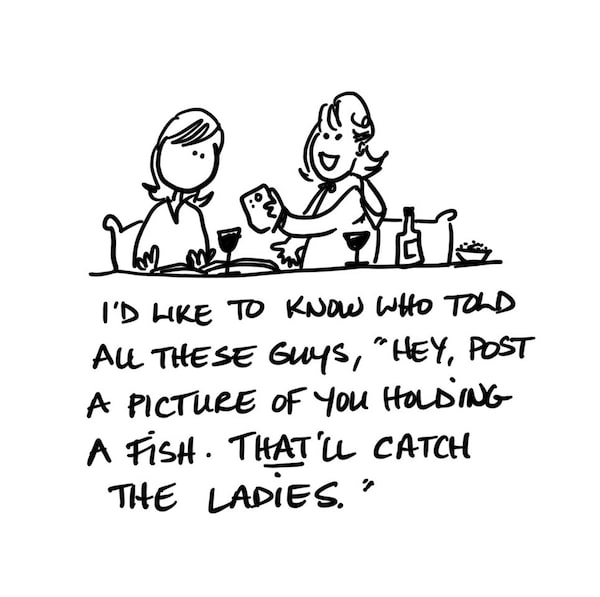This is the weekly Amplify newsletter, where you can be inspired and challenged by the voices, opinions and insights of women at The Globe and Mail, and our contributor community.
Ann Dowsett Johnston is an award-winning journalist turned psychotherapist, and the best-selling author of Drink: The Intimate Relationship Between Women and Alcohol.
Ten years ago, long before women’s fatalities from alcohol had begun to catch up to men’s, I predicted that development in my book Drink: The Intimate Relationship Between Women and Alcohol.
At the time my book appeared, I was five years sober, a fact that one editor had encouraged me to keep secret. Truth was, I – a well-educated former senior editor at Maclean’s and vice-president at McGill University – had previously been a risky, daily drinker.
My book broke the story on the “pinking” of the alcohol market – the ways in which it sought to appeal more broadly to women. Drink connected the dots on the link between alcohol and breast cancer, and more. It called for an end to the stigma and shone a light on the misuse of a substance that causes more deaths annually than illicit drugs. It named alcohol “the modern woman’s steroid, enabling her to do the heavy lifting in a complex world.” It underscored the connection between trauma and self-medication and perfectionism. It also delved into the toxic river that runs through my family’s bloodlines. What it didn’t explore was the connection between heavier drinking and peri-menopause, plus menopause itself. Nor did it explore the connection between taking SSRI antidepressants and riskier drinking, a study of which was released last month.
Recently, Laura McKowen – an “It” girl of modern recovery culture who has been sober since 2014 – wrote on Instagram: “Before me … before ‘sober curious,’ and ‘sober is the new black’ and ‘sober influencer’ and #soberAF and sober as a lifestyle choice, and all the hashtags and brands and podcasts and books and movements and recovering out loud – there was Ann. She laid the groundwork that we women got to walk on and build from.”
Why do I tell you all this now? Because sadly, everything I predicted in my book has come true. In July, an American study revealed that alcohol-related deaths among women are rising faster than among men, especially for those 65 and older. We have a public health crisis, sorely ignored. For some time now, women and young girls have outpaced men in emergency room visits related to alcohol. In 2017, alcohol was linked to 18,000 deaths in Canada. The cost to the Canadian health care system: $5.4-billion. And that was before the epidemic of risky drinking during the pandemic.
The good news? It has never been easier to live a moderate or sober life. Early this year, new low-risk drinking guidelines were announced in Canada and reverberated around the world. No amount of drinking is good for you – tough news for a country where 78 per cent of the population 15 and older drinks. If you want to drink, the safest choice is three or fewer measured drinks a week. The Americans are considering following suit with similar guidelines.
In January, when the new guidelines were released, the public rebelled. Three measured drinks or less a week seems ascetic. Essentially, the response was: I pay my taxes, I work hard, I raise good kids. What I do on a Friday night – or any other night of the week – is my business. But anecdotally, I am hearing many have reconsidered their drinking habits, dialing back on nightly tippling. This month, the Canadian Centre on Substance Use and Addiction is releasing a vibrant ad campaign entitled “Drink less. Live more.” No surprise: I am a fan.
The non-alcoholic beverage market is booming, as is the modern recovery movement, offering many alternatives to the still-thriving 12-step programs. If you are losing yourself down the neck of a bottle, if you are drinking more than six drinks a week, if you are numbing or self-medicating, reach out. Support abounds.
And me? Two weeks ago, a small group of women gathered to celebrate my 70th birthday. When the cake was served, my friend read a speech with seven things she loves about me. No. 7: My laughter and its unbridled, unabashed delight.
Delight sums up my joy in having the privilege to be entrusted with my granddaughter – a privilege that would be denied were I still drinking. It also sums up my pleasure in being able to read before bed and remember what page I am on the next morning; the energy with which I rise, hangover-free, to put on my clothes and do my pre-dawn walk in nature.
This week, I marked 15 years sober. On average, it takes most women 12 years to assess their risky drinking and put down the glass. We live in a culture with surround-sound messaging: Alcohol is how we relax, celebrate, reward ourselves. Think about it: Alcohol is the only drug we have to make excuses for not using. This must change.
“Drink less, live more.” I challenge you to embrace this. Your life might depend on it.
What else we’re thinking about:
I write a daily gratitude list, with a twist, thanking for the good and the bad. I give thanks for my single status, being the flipside of being loved. I lean into grief, fear. There’s a strange alchemy to the process: over time, you can make enormous shifts in accepting the ever-peeling artichoke of life.
Marianne

Marianne Kushmaniuk for The Globe and Mail
Inspired by something in this newsletter? If so, we hope you’ll amplify it by passing it on. And if there’s something we should know, or feedback you’d like to share, send us an e-mail at amplify@globeandmail.com.